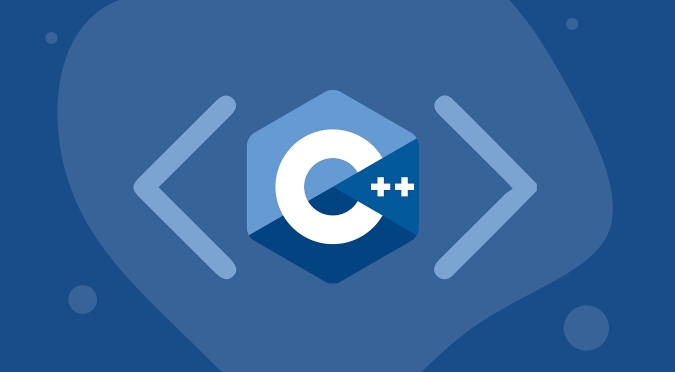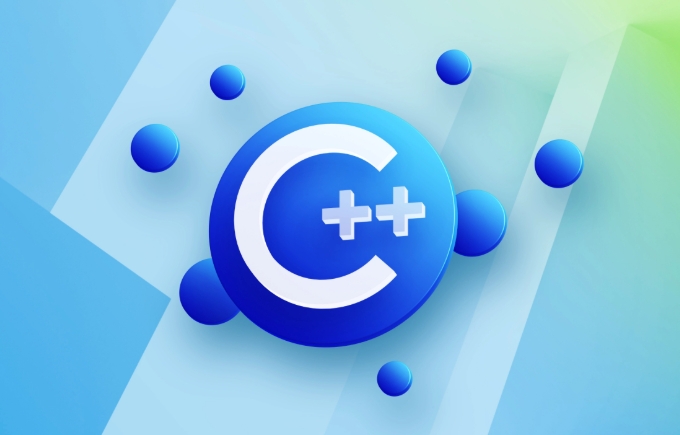Static keywords are used in C to change the life cycle or access scope of a variable or function, depending on the context. ① The static variables in the function have a global life cycle, but are only visible within the function, and initialization is only performed once; ② The static members in the class belong to the entire class rather than the object, and all instances share the same data; ③ The static function can only access static members and can be called without creating an object; ④ The static in the global scope restricts the scope of the variable or function to the current file, encapsulation; ⑤ When using it, it is necessary to note that the static members in the class must be defined outside the class, thread safety of local static variables, and avoid abuse. Mastering static can improve code efficiency and structural clarity, but it also needs to be used with caution.

Static keyword in C is a keyword that is easy to use but not easy to understand thoroughly. It has different functions in different contexts, including static variables, static functions, static members, etc. Mastering its use can help you write more efficient and clearer code.

What are static variables?
Static variables are most commonly used inside functions and in classes.

Static variables in the function:
When you declare a static variable in a function, the life cycle of this variable will run throughout the program, but it will only be initialized once the first time it is executed to the declaration.

void count() {
static int counter = 0;
std::cout << counter << std::endl;
} Each time the count() function is called, counter value is incremented, rather than resetting to 0 each time. This is because the static variable is not destroyed as the function call ends.
Static member variables in the class:
The static member in the class belongs to the entire class, not an object of the class. That is, no matter how many objects are created, there is only one copy of the static member.
For example:
class MyClass {
public:
static int count;
MyClass() { count ; }
};
int MyClass::count = 0; // Must be defined outside the class In this way, count will be added when each object is constructed to count how many objects have been created.
What's special about the static function?
The static function in the class can only access static member variables and other static functions. Because it does not have this pointer, it cannot be bound to a specific object.
For example:
class Utility {
public:
static void printVersion() {
std::cout << "Version: " << version << std::endl;
}
private:
static std::string version;
};
std::string Utility::version = "1.0"; In this example, printVersion is a static function that can only access static member version . If you try to access non-static members, the compiler will report an error.
The advantage of static functions is that they can be called directly without creating objects, such as tool classes or helper functions that are very commonly used in this way.
What does static do in global scope?
Using the static keyword in a global scope (i.e. not in a class or function) affects the linkability of a variable or function.
- static global variable: Its scope is limited to the current file and other files cannot be accessed through extern.
- static function: It can also be used only in the files that define it to prevent naming conflicts.
for example:
// file1.cpp
static int secret = 42;
void showSecret() {
std::cout << secret << std::endl;
} Other source files cannot access secret , even if they know the name, it is useless. This is useful for package implementation details.
Several things to note when using static
- The static members in the class must be defined separately outside the class, otherwise an error occurs when linking.
- Static local variables can cause problems in multithreaded environments unless the initialization is thread-safe (C 11 The default thread-safe initialization of local static variables).
- Don't abuse static, especially in class designs, overuse can make the code difficult to maintain and test.
Basically that's it.
The key to understanding static is to remember that it changes the life cycle or access scope of a variable or function, and the specific behavior depends on the context used.
The above is the detailed content of C tutorial explaining the static keyword. For more information, please follow other related articles on the PHP Chinese website!

Hot AI Tools

Undress AI Tool
Undress images for free

Undresser.AI Undress
AI-powered app for creating realistic nude photos

AI Clothes Remover
Online AI tool for removing clothes from photos.

Clothoff.io
AI clothes remover

Video Face Swap
Swap faces in any video effortlessly with our completely free AI face swap tool!

Hot Article

Hot Tools

Notepad++7.3.1
Easy-to-use and free code editor

SublimeText3 Chinese version
Chinese version, very easy to use

Zend Studio 13.0.1
Powerful PHP integrated development environment

Dreamweaver CS6
Visual web development tools

SublimeText3 Mac version
God-level code editing software (SublimeText3)
 Using std::chrono in C
Jul 15, 2025 am 01:30 AM
Using std::chrono in C
Jul 15, 2025 am 01:30 AM
std::chrono is used in C to process time, including obtaining the current time, measuring execution time, operation time point and duration, and formatting analysis time. 1. Use std::chrono::system_clock::now() to obtain the current time, which can be converted into a readable string, but the system clock may not be monotonous; 2. Use std::chrono::steady_clock to measure the execution time to ensure monotony, and convert it into milliseconds, seconds and other units through duration_cast; 3. Time point (time_point) and duration (duration) can be interoperable, but attention should be paid to unit compatibility and clock epoch (epoch)
 How to get a stack trace in C ?
Jul 07, 2025 am 01:41 AM
How to get a stack trace in C ?
Jul 07, 2025 am 01:41 AM
There are mainly the following methods to obtain stack traces in C: 1. Use backtrace and backtrace_symbols functions on Linux platform. By including obtaining the call stack and printing symbol information, the -rdynamic parameter needs to be added when compiling; 2. Use CaptureStackBackTrace function on Windows platform, and you need to link DbgHelp.lib and rely on PDB file to parse the function name; 3. Use third-party libraries such as GoogleBreakpad or Boost.Stacktrace to cross-platform and simplify stack capture operations; 4. In exception handling, combine the above methods to automatically output stack information in catch blocks
 What is a POD (Plain Old Data) type in C ?
Jul 12, 2025 am 02:15 AM
What is a POD (Plain Old Data) type in C ?
Jul 12, 2025 am 02:15 AM
In C, the POD (PlainOldData) type refers to a type with a simple structure and compatible with C language data processing. It needs to meet two conditions: it has ordinary copy semantics, which can be copied by memcpy; it has a standard layout and the memory structure is predictable. Specific requirements include: all non-static members are public, no user-defined constructors or destructors, no virtual functions or base classes, and all non-static members themselves are PODs. For example structPoint{intx;inty;} is POD. Its uses include binary I/O, C interoperability, performance optimization, etc. You can check whether the type is POD through std::is_pod, but it is recommended to use std::is_trivia after C 11.
 How to call Python from C ?
Jul 08, 2025 am 12:40 AM
How to call Python from C ?
Jul 08, 2025 am 12:40 AM
To call Python code in C, you must first initialize the interpreter, and then you can achieve interaction by executing strings, files, or calling specific functions. 1. Initialize the interpreter with Py_Initialize() and close it with Py_Finalize(); 2. Execute string code or PyRun_SimpleFile with PyRun_SimpleFile; 3. Import modules through PyImport_ImportModule, get the function through PyObject_GetAttrString, construct parameters of Py_BuildValue, call the function and process return
 What is function hiding in C ?
Jul 05, 2025 am 01:44 AM
What is function hiding in C ?
Jul 05, 2025 am 01:44 AM
FunctionhidinginC occurswhenaderivedclassdefinesafunctionwiththesamenameasabaseclassfunction,makingthebaseversioninaccessiblethroughthederivedclass.Thishappenswhenthebasefunctionisn’tvirtualorsignaturesdon’tmatchforoverriding,andnousingdeclarationis
 How to pass a function as a parameter in C ?
Jul 12, 2025 am 01:34 AM
How to pass a function as a parameter in C ?
Jul 12, 2025 am 01:34 AM
In C, there are three main ways to pass functions as parameters: using function pointers, std::function and Lambda expressions, and template generics. 1. Function pointers are the most basic method, suitable for simple scenarios or C interface compatible, but poor readability; 2. Std::function combined with Lambda expressions is a recommended method in modern C, supporting a variety of callable objects and being type-safe; 3. Template generic methods are the most flexible, suitable for library code or general logic, but may increase the compilation time and code volume. Lambdas that capture the context must be passed through std::function or template and cannot be converted directly into function pointers.
 What is a null pointer in C ?
Jul 09, 2025 am 02:38 AM
What is a null pointer in C ?
Jul 09, 2025 am 02:38 AM
AnullpointerinC isaspecialvalueindicatingthatapointerdoesnotpointtoanyvalidmemorylocation,anditisusedtosafelymanageandcheckpointersbeforedereferencing.1.BeforeC 11,0orNULLwasused,butnownullptrispreferredforclarityandtypesafety.2.Usingnullpointershe
 How does std::move work in C ?
Jul 07, 2025 am 01:27 AM
How does std::move work in C ?
Jul 07, 2025 am 01:27 AM
std::move does not actually move anything, it just converts the object to an rvalue reference, telling the compiler that the object can be used for a move operation. For example, when string assignment, if the class supports moving semantics, the target object can take over the source object resource without copying. Should be used in scenarios where resources need to be transferred and performance-sensitive, such as returning local objects, inserting containers, or exchanging ownership. However, it should not be abused, because it will degenerate into a copy without a moving structure, and the original object status is not specified after the movement. Appropriate use when passing or returning an object can avoid unnecessary copies, but if the function returns a local variable, RVO optimization may already occur, adding std::move may affect the optimization. Prone to errors include misuse on objects that still need to be used, unnecessary movements, and non-movable types






